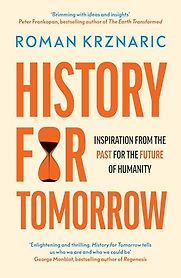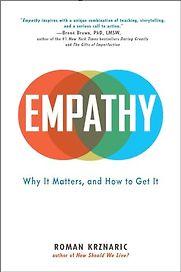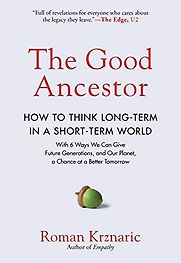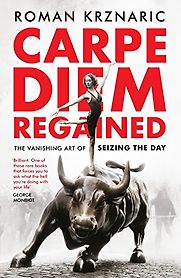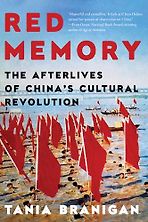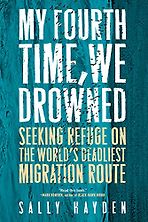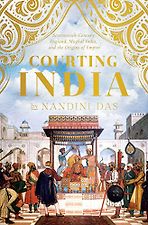History for Tomorrow: Inspiration from the Past for the Future of Humanity
by Roman Krznaric
History for Tomorrow is an empowering book by Oxford-based social philosopher Roman Krznaric, arguing that we have much to learn from history about how to tackle the challenges we face today. Krznaric focuses on ten existential challenges (including climate change, weakening of democracy, social media polarization) and how episodes from the past can help us to navigate them. Underlying the book is the notion that it’s not technology that will solve the world’s problems, but human ingenuity and our ability to organize ourselves to make change.
Recommendations from our site
“So one example is that we have a global water crisis on the horizon, and wars between states and within states over water have been escalating rapidly since the year 2000. We know that there are going to be huge water shortages in the big cities of the world: Los Angeles, Cairo, Melbourne, São Paulo, Beijing. How are we going to deal with that? In the chapter of the book about water, I look at something called the ‘Tribunal de las Aguas’ (the ‘tribunal of waters’) in the Spanish city of Valencia. It’s Europe’s oldest legal institution and it’s a water court. There are these eight black-cloaked figures who come out every Thursday at 12 noon and meet outside the west door of the cathedral in Valencia and hold public hearings. They are democratically elected representatives, in charge of the local irrigation canals of the Valencia agricultural hinterland, where we get our juicy Valencia oranges from. They are elected by local farmers. And if a farmer has been taking more than their fair share of water or not looking after their section of the canal, they might get fined in one of these public hearings, and tourists can watch them. I’ve been there and seen it. The interesting thing about the Tribunal of Waters is that it’s been meeting outside the cathedral every Thursday at noon for hundreds of years. This is an ancient institution. It’s a piece of living history. In fact, some people say it dates to before the Christian reconquest of Valencia in the mid-13th century. So it’s got deep, deep roots. I think it’s a wonderful example of questioning the way we look at water today. Take the United Kingdom, where water is controlled by private monopolies. If you were thinking about it from the Valencia perspective, why don’t we have more community ownership of our water? Why don’t we have elected community members on the boards of water companies? How could that Valencia model be used to deal with water conflicts?” Read more...
The best books on The Lessons of History
Roman Krznaric, Philosopher
Other books by Roman Krznaric
Our most recommended books
-

Wild Thing: A Life of Paul Gauguin
by Sue Prideaux -

Red Memory: The Afterlives of China's Cultural Revolution
by Tania Branigan -

The Living Mountain
by Nan Shepherd -

My Fourth Time, We Drowned
by Sally Hayden -

Courting India: England, Mughal India and the Origins of Empire
by Nandini Das -

Question 7
by Richard Flanagan
